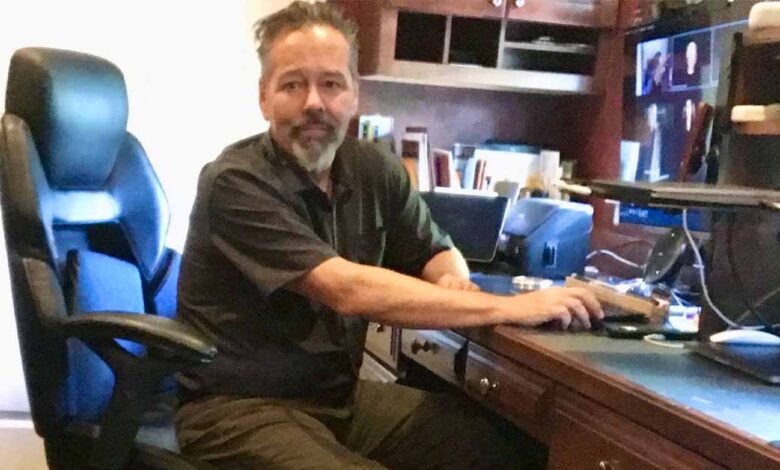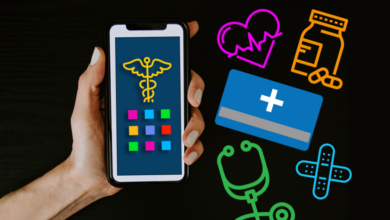GenAI used to record helps Lee Health doctors add one patient per day


Keeping medical records for practicing physicians has been a challenge since the creation of medical charts. During his years in practice, Dr. Will Carracino, chief medical information officer at the Florida-based nonprofit health system Lee Health, recalls struggling to keep up with records from his first day as a physician.
PROBLEM
“It’s hard to put exactly what’s going to convey the feeling the patient is experiencing on a chart,” Carracino explains. “While I was in practice, I would buy a really nice fountain pen to entice myself to spend more time charting, convincing myself that I would enjoy charting more with this addition.
“Medical practitioners value the time spent serving and supporting each patient individually,” he continued. “Charting is time-consuming, taking away from the limited time physicians have in the office with patients. The process also impacts the quality of patient-physician interactions. Taking notes, often on a computer, can be distracting and frustrating for both physicians and patients.”
Although the process can be cumbersome at times, clinical documentation is an important part of the role of a practicing physician. It is about keeping a record of the patient experience. The information and summaries provided, which are also accessible to patients, assist in improving the health and well-being of each individual.
PROPOSE
“Historically, we’ve looked at a lot of different solutions for medical documentation,” Carracino notes. “An opportunity Using AI to create transcriptions is presented as a solution that could improve the patient and doctor experience together. Using human transcriptions has been a tried-and-true solution in the past, but this option has proven to be both expensive and prone to human error.
“We started using speech recognition and natural language processing over a decade ago,” he continued. “The early iterations were very cumbersome. I used to explain that speech recognition software that does natural language processing is like trying to train a spouse. There are things you can change over time, but for other things, you just have to work within the structure of the relationship.”
Generative AI promises to require less training, restore doctors’ ability to interact with patients without technology interfering with the conversation, and give doctors valuable time to care for patients and more personal opportunities, helping to prevent burnout, he added.
Facing the Challenge
Carracino says the new generative AI feature is a breakthrough.
“As long as there is a listening device in the room after getting the patient’s consent, the conversation flows just like you might have a conversation in a coffee shop, except for the medical concerns,” he explains. “Gone are the days when patients watch their doctors tap away on a keyboard to record their experience. AI focuses on medical concerns, extracts social information, and organizes notes into a well-formatted, easy-to-read medical document.
“We started with a pilot group of 20 providers,” he continued. “The provider profiles included internal medicine, cardiology, pain management, and pediatrics. Our plan was to find providers who were able to adopt the new technology but still had the potential to improve their document processing time or patient throughput.”
Lee Health’s AI transcription technology, Abridge, integrates seamlessly into the Epic electronic health record. Providers find the process much less cumbersome than previous transcription techniques.
RESULT
Lee Health is still in the process of validating exact results data, but Carracino outlined five beneficial results so far:
-
Improved note completion, now same-day for more than half of clinicians. Improved efficiency and provider satisfaction; critical to supporting providers and combating burnout. Based on pre/post survey questions from the pilot group, 74% of clinicians spent less time working overtime, improving provider satisfaction and work-life balance.
-
86% of physicians now feel they have enough time to take notes. Lee Health is tracking the impact of this to improve patient access by allowing providers to add one patient per day to their schedule. This allows patients to schedule in a faster time frame, adding an average of two patients per week. With time to take notes in their regularly scheduled work, physicians can get their work done.
-
Reduced transcription errors. Increased charting time ensures physicians can enter detailed and accurate patient information, reducing the chance of errors.
-
Patients benefit from more attentive care and detailed advice, leading to higher levels of satisfaction with their healthcare experience.
-
Lee Health predicts improved physician retention rates. With reduced burnout, fewer physicians feel the need to leave the practice, helping to maintain a stable and experienced medical workforce, contributing to an overall improvement in the quality of care. This improvement in workflow efficiency allows physicians to maintain a better work-life balance, reducing stress and improving job satisfaction.
ADVICE FOR OTHERS
“I don’t think anyone can deny that. “Genetic artificial intelligence is going to change health care in our country,” Carracino declared. “The question is, How can we do that in a way that is safe, efficient, and effective?
“We have an AI governance committee at our institution, and that committee includes both operational and clinical leaders,” he advises others. “The committee looks at the value of implementing new technology and the opportunities to analyze what it can bring to patients and providers.”
While each product has its own purpose, not all of them align with Lee Health’s mission and vision as a health system.
“This is going to be an exciting segment of our medical history and we need to embrace it appropriately, both with the exciting vision it deserves and using our classic techniques of evaluating products for value and safety,” he concluded.
The HIMSS AI Forum in Healthcare is scheduled to take place September 5-6 in Boston. Learn more and sign up.
Follow Bill’s HIT coverage on LinkedIn: Bill Siwicki
Email him: [email protected]
Healthcare IT News is a publication of HIMSS Media.




